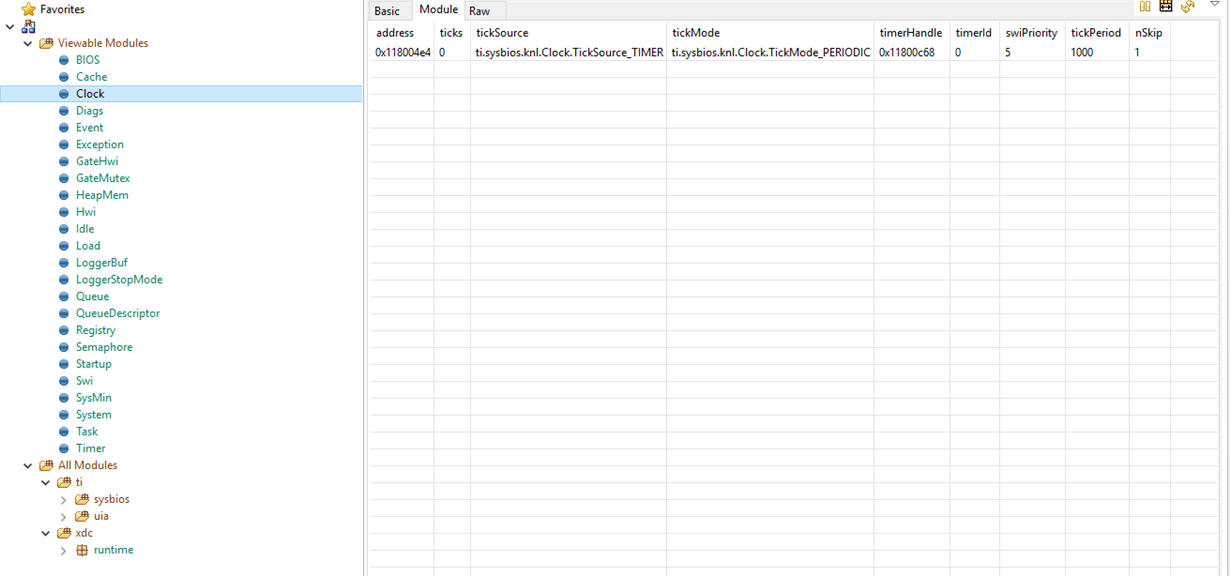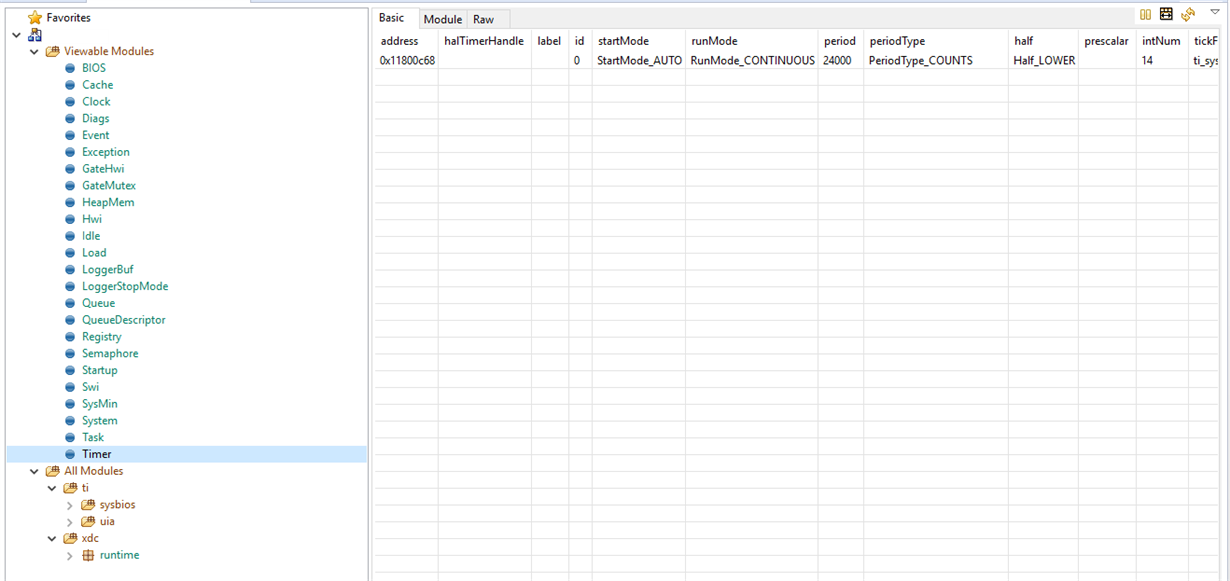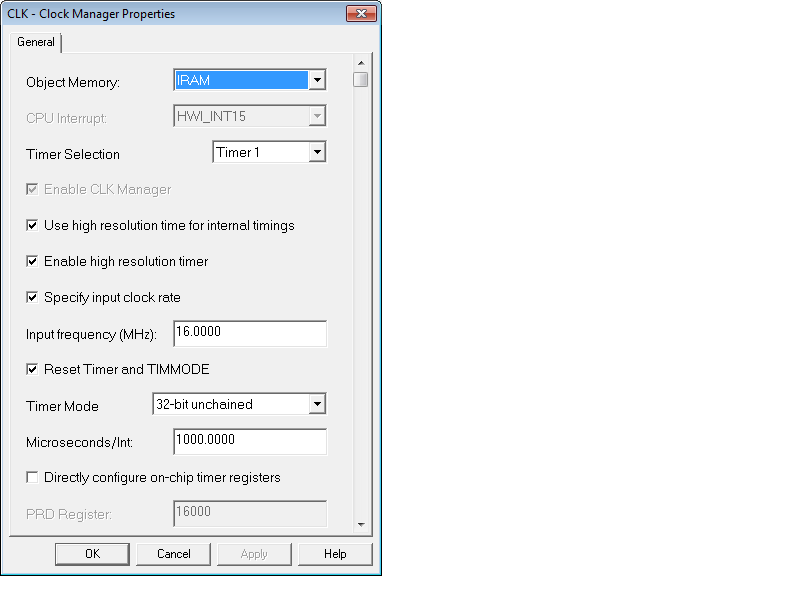Tool/software: Code Composer Studio
Hello,
I'm confused about the hal timer, versus the clock module. I've attached two pictures from the sys-bios ROV, one showing the Timer configuration, and the Clock configuration. Couple questions:
1) why is the period of the hal timer 24000. My cpu osc is 336,000,000. That would give a tick rate of 71.4 uS?
2) Both the hal and clock timers are ID 0. Is that right?
3) I've set the clock period to 1000. That is 1 ms?
4) Is there anyway to get the hal timer and clock handles, so I can make calls querying their values
5) when I make a call to xdc_runtime_Timestamp_get32(), is it using the clock or hal timer. And are the counts from that call of ( 1 / 336,000,000) in increments?
6) do I really need to use the clock, when the hal timer is already there?
Here are my .cfg settings. I don't know if they are right for what I'm after, but was just trying things out
var Clock = xdc.useModule( 'ti.sysbios.knl.Clock' );
Clock.timerId = 0;
Clock.swiPriority = 5;
Clock.tickPeriod = 1000;
Clock.tickSource = Clock.TickSource_TIMER;
Thanks,
Robert





